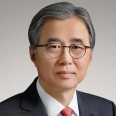The international community is concerned with the possibility of U.S. isolationism should former President Donald Trump win the November U.S. presidential election. However, we should be more concerned about the signs of regression and crisis in U.S. democracy. In his acceptance speech for the Republican presidential nomination, former President Trump said, “The discord and division in our society must be healed.” Meanwhile, Democrats consider former President Trump an “existential threat” to democracy. In a 2022 Pew Research survey, over two-thirds of Republicans and Democrats viewed each other as ‘immoral,’ ‘dishonest,’ and ‘closed-minded.’ The greatest strength of American liberal democracy was its ‘bipartisanship,’ in which the people would transcend partisan lines on major national issues, but this has been hard to see in recent years.
One of the past strengths of U.S. foreign and security policy was its consistency based on bipartisan consensus. Because the United States upheld its security commitments to its allies and partners, many countries could trust the United States and go along with its policies. The Trump administration’s decision to withdraw from the Paris Climate Agreement in 2020 diminished U.S. credibility in the international community. Statements threatening to pull out U.S. troops stationed abroad or withdraw from NATO if demands to increase defense cost-sharing are not met have also made allies anxious.
If the belief that the United States is a country that upholds the values of liberal democracy is shaken, U.S. status and credibility will be lost. In an early 2024 Pew Research survey conducted in 34 countries asking whether “democracy in the United States is a good example to follow,” only 21% of respondents agreed that the United States is a good example compared to 40% who said it used to be a good example but has not been in recent years.
The liberal international order is a global system based on values such as democracy, human rights, the rule of law, market economy, and free trade. The United States was the founder of this order and served as its guardian. However, political instability and division within the United States weaken its ability to support and protect these values. This could potentially trigger a crisis of democracy in other countries, as seen by the recent rise of the far-right in Europe.
The weakening of the liberal international order can provide an opportunity for authoritarian regimes that seek to undermine the existing order. When the United States fails to properly function as a model of democracy, authoritarian regimes such as Russia, China, and North Korea will argue that their own authoritarian governance model is more stable and efficient by stressing the political chaos in the United States. They are likely to tighten domestic control and try to threaten other countries to try and establish a non-liberal international order. In particular, North Korea will regard the very existence of free and prosperous South Korea as the greatest threat to the survival of its regime and ceaselessly seek to achieve the reunification of the Korean Peninsula under the communist flag.
Since the crisis of U.S. democracy is an issue that can have far-reaching impacts on the entire world, American society must first seek self-reflection and change. The Democratic Party and the Republican Party should seek a consensus to restore bipartisanship by promoting mutual understanding and cooperation. American voters should also stop fighting over political orientation, race, and religion and rediscover the spirit of harmony and inclusiveness. I sincerely hope that this efforts will restore the spirit of fair play in American society.
* The view expressed herein was published on August 12 in The Dong-a Ilbo and does not necessarily reflect the views of The Asan Institute for Policy Studies.

 Facebook
Facebook Twitter
Twitter